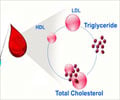New health calculator tool can accurately predict the risk of developing heart disease as well as age of heart, based on several parameters, and aims to reduce adverse heart related events.
Highlights:
- New online health calculator accurately predicts heart disease risk and heart age based on several parameters, many of which are modifiable
- Heart disease is the leading cause of death worldwide as well as in Canada, and most persons are unaware of their risk factors until a major adverse heart event, which could be fatal
- Knowledge of a person’s heart disease risk and specific risk factors that need to be addressed and modified will help institute individualized treatment measures aimed at reducing this risk and improving overall outcome of the patient.
The steps to build and validate the heart risk calculator tool appears in CMAJ (Canadian Medical Association Journal ).
Details of the Study
- The large study was conducted among residents of Ontario Canada. The study team gathered information on 104219 residents from the Canadian Community Health Surveys between 2001 and 2007, linked to ICES records on hospitalizations and deaths in order to create and test the Cardiovascular Disease Population Risk Tool (CVDPoRT).
- The calculator also provides information about the state of the heart by estimating the heart age.
Advantages of The Heart Disease Risk Calculator Tool
Unlike other risk prediction tools, the CVDPoRT takes into account several factors, such as sociodemographic status, environmental influences like air pollution, lifestyle behaviors such as smoking alcohol intake, physical activity, and other underlying health conditions. The list includes the following- Age
- Ethnicity
- Diet
- Exercise and physical activity
- Stress
- Smoking history and lifetime exposure to cigarette smoke
- Alcohol intake
- Sense of belonging
- Immigration status
- Education level
- Socioeconomic status of the neighborhood
- High blood pressure
- Diabetes
Scope of This Health Tool
- The tool can be used by an individual to know about his or her heart disease risk
- The tool can be modified for use in any of the 100 countries in the world that routinely collect health survey data to estimate risk profiles of different populations.
- Currently, this tool is calibrated to the Canadian population
Prevention of Heart Disease Risk
Heart disease is caused by a combination of several factors, some unmodifiable and several modifiable. We can therefore significantly heart disease risk by addressing the modifiable risk factors (through lifestyle change or medications), by following the simple measures below- Quit smoking
- Limit alcohol intake
- Exercise every day for at least 20 minutes
- Maintain a healthy weight
- Eat a healthy diet with plenty of fresh fruits and vegetables; avoid junk food high in saturated fats
- Practice stress reduction techniques such as relaxation, deep breathing and yoga
- Effective control of high blood pressure and diabetes
- Reduce high blood cholesterol levels
- Get a good night’s rest
Heart attack preventive measures should begin early in life. It is advisable to start with an assessment of your risk factors and institute a plan of action to follow long-term, in order to lower the risk of heart attack. Prevention is key, since many first-time heart attacks can be fatal or severely affect the quality of one’s life and economic productivity.
References:
- Understand Your Risks to Prevent a Heart Attack - (http://www.heart.org/HEARTORG/Conditions/HeartAttack/UnderstandYourRiskstoPreventaHeartAttack/Understand-Your-Risks-to-Prevent-a-Heart-Attack_UCM_002040_Article.jsp#.W1QpxzozbIU)
- SEVEN MORE YEARS: The impact of smoking, alcohol, diet, physical activity and stress on health and life expectancy in Ontario - (https://www.publichealthontario.ca/en/eRepository/PHO-ICES_SevenMoreYears_Report_web.pdf)
Source-Medindia
















